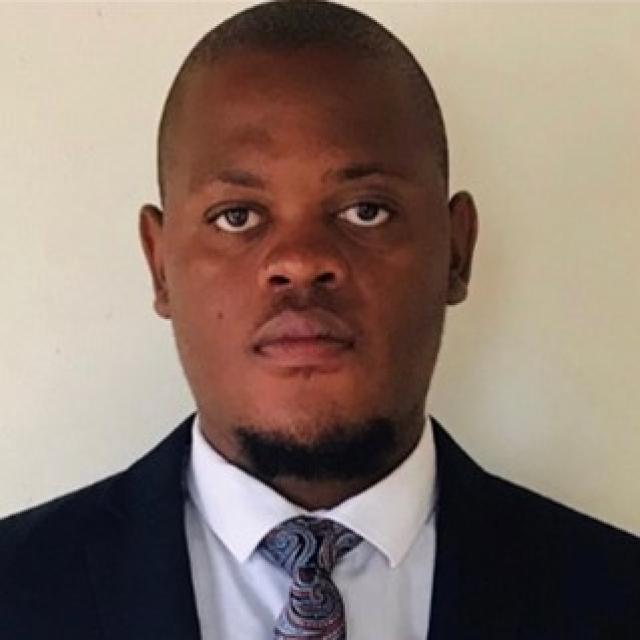SLL3114W XHOSA COMMUNICATION FOR EDUCATORS
Convener: TBA
Course entry requirements: Acceptance for a PGCE.
Course outline:
A communicative course that will enable English speaking educators to use simple Xhosa in the classroom and in every day interactions. The course is presented as a mix of grammar and useful classroom-specific phrases and vocabulary, focusing on the relationship development with students that learning Xhosa facilitates, as well as enhanced understanding of the role of language in education. The main texts for the course are provided on Vula, along with exercises and assessment. Students are provided with self-study material while they are on Teaching Practice in schools. Oral assessments may be conducted in order to assess students’ ability to use the new language appropriately and with meaningful impact.
DP requirements: At least 80% attendance record and submission of all assignments and projects.
Assessment: Tests and assignments count 60%. The final exam counts 40%.
SLL4104F TOPICS IN AFRICAN LANGUAGES 1
Convener: Dr Rethabile Possa
Course entry requirements: Acceptance for an honours programme.
Course outline:
This course offers a detailed study of African literature – using specific texts to elaborate particular genres (determined by student interest and staff availability), across a broad time span. Close attention is paid to primary sources, textual and material, and trends in scholarship on African oral and written literature are subjected to analysis. Topics offered have included Traditional African Oral Poetry, African novels translated into English, and Oral Traditions as realized in contemporary fiction and film.
Students will be assessed on their ability to identify and classify different texts and oral pieces. Student should reflect an understanding of features that are unique to African literature and how they fit into the study of prose narratives. Students should demonstrate the ability to critically respond to different types of texts.
DP requirements: At least 80% attendance required.
Assessment: Two-hour written examination counts 50%; two essays (50% combined).
SLL4105F TOPICS IN AFRICAN LANGUAGES 2
Convener: Sanele Ntshingana
Course entry requirements: Acceptance for an honours programme.
Course outline:
TRANSLATION STUDIES
The course introduces students to the history of literary and technical translations in their historical, cultural, and anthropological contexts. Students will investigate the practice of translation and the theories derived from it. The students will, therefore, be familiar with the function of translation in society, and to show the multiple ways in which translation has operated historically, and continues to operate in the daily life of citizens in the modern world. It looks at how translation has been used and continues to be used as a resource to conquer isolation that linguistic and cultural differences amongst societies would otherwise impose. In other words, it shows how texts travel across cultural boundaries.
The course also looks at translation as an essential part of language planning. With the view that African languages need to be used not only as a tool for communication but as a reflection of socio-economic progress in African societies and the world at large, the course will also look at how translation can be used in expanding the capacity of African languages to 'intellectual' domains that have been dominated by English and Afrikaans in the case of South Africa.
The participants in the course will also be introduced to common types of translation - 'technical' and 'literary' translation, and will be required, for the large part of the course, to do practical translations of the above genres.
The primary language in the course is English. Exemplifications of translation will be from English and isiXhosa, the first language of the facilitator. Students are encouraged to use their languages to translate into or illustrate a point during classes.
Although the course is an introductory course, it takes cognisance of the fact that the degree itself is a senior degree.
DP requirements: At least 80% attendance required.
Assessment: Two-hour written examination counts 50%; two essays (50% combined).
SLL4106S TOPICS IN AFRICAN LANGUAGES 3
Convener:
Course entry requirements: Acceptance for an honours programme.
Course outline:
This course offers a detailed study of aspects of Nguni and Sotho Morphology and Syntax (determined by student interest and staff availability). It is expected that through working with historical and contemporary data, students will get an understanding of how the study of Bantu morphology and syntax have been influenced by, and also influence, linguistic theory.
The course aims to introduce students to the morphology and syntax of Bantu languages in general. Students will be equipped with data analysis skills in the area of morphology and syntax. It is expected that through working with data, students will get an understanding of how the study of Bantu morphology and syntax have contributed to the advancement of linguistic theory.
At the end of the course, students will be expected to demonstrate basic data collection and analysis skills and exhibit a clear understanding of the morphological and syntactic features that are unique to Nguni/Sotho languages and how these have contributed to linguistic theory in general. Students will also be expected to critique scholarly articles on morphology and syntax.
DP requirements: At least 80% attendance required.
Assessment: Two-hour written examination counts 50%; two essays (50% combined).
SLL4107S TOPICS IN AFRICAN LANGUAGES 4
Convener: Dr T Dowling
Course entry requirements: Acceptance for an honours programme.
Course outline:
The course offers a detailed study of selected aspects of language acquisition theory and teaching methodology (according to student interest and staff availability). Topics have included Learner language and Language Transfer, Individual Variation and Classroom Strategies and First Language Acquisition vs second Language Acquisition.
The aims of the course are to introduce students to language acquisition theories and language teaching methods. The course also aims at equipping students with skills that will enable them to collect language acquisition data and use the data in preparing specific teaching activities. Additionally, the course introduces students to language testing and evaluation.
At the end of this course, students will be expected to show an understanding of language acquisition theories and language teaching methods. Students will be expected to demonstrate data collection and analysis skills, the ability to prepare specific teaching activities and demonstrate these through targeted events that maximise learner involvement.
Additionally, students will be expected to develop language testing and evaluation for teaching isiXhosa/Sesotho as a second language.
DP requirements: At least 80% attendance required.
Assessment: Two-hour written examination counts 50%; two essays (50% combined).




